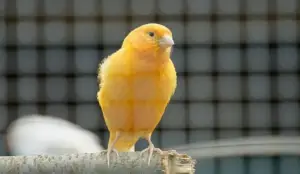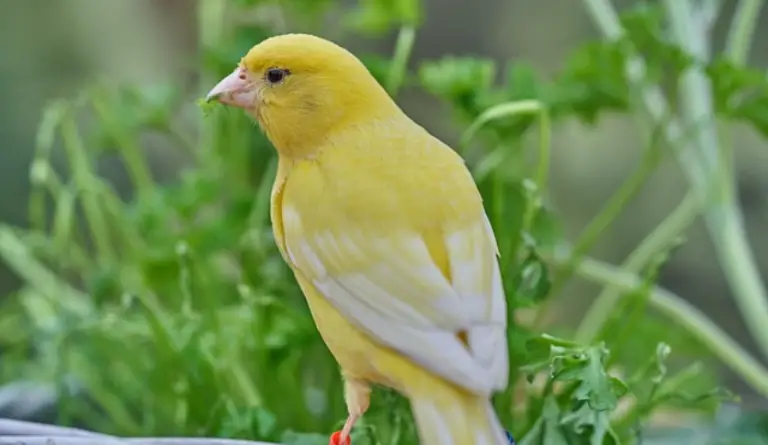Welcome to our feather-filled world, where we’ll explore the fascinating life of canary birds. A question that often flutters in the minds of bird enthusiasts and potential pet owners alike is, “How long do canary birds live?” It’s a simple yet important query that reveals a number and a journey filled with chirps, songs, and vibrant life. Whether you’re considering adopting one of these musical creatures or are just curious about their lifespan, you’ve come to the right place.
Join me as we dive into the vibrant life cycle of canary birds, uncovering what influences their longevity and how we can help them lead a full and happy life.
What Determines the Lifespan of a Canary Bird?
Their genetics significantly influences Canary birds’ lifespan, with some breeds living longer than others.
From my journey with various breeds, I’ve noticed that genetics play a crucial role in determining how long our feathered friends can live. Some canary breeds, like the Border Canary, are known for their robust health and longer lifespan. It’s fascinating how much breed-specific traits can impact their overall longevity.
The Impact of Diet on Canary Bird Longevity

What they eat is incredibly important to ensure a long and healthy life for our canary friends. Just like us, canaries need a balanced and nutritious diet to thrive. But what does a good diet for a canary look like?
Firstly, high-quality seeds should form the basis of their diet. These seeds are more than just food; they’re packed with the essential nutrients that canaries need to maintain their energy and health. However, seeds alone aren’t enough. That’s where fresh fruits and vegetables come into play.
Incorporating a variety of vegetables and fruits into their diet can make a huge difference. Leafy greens, for instance, are a powerhouse of vitamins and minerals. Think of spinach, kale, and lettuce – these greens offer nutritional benefits and add a bit of fun to their feeding time. Canaries enjoy pecking and playing with their food, so these greens are perfect.
Sprouted seeds are another game-changer. When sprouting seeds, their nutritional value increases, making them a superfood for canaries. They’re easy to prepare at home and are a delightful treat for your feathered friends.
But it’s not just about what you feed them; it’s also about how much and how often. Overfeeding can lead to obesity, which is a common problem in pet birds and can significantly shorten their lifespan. Finding a balance is crucial – enough food to keep them energetic and healthy, but not so much that it leads to weight gain.
From my own experience, when I introduced a variety of fresh foods and balanced it with high-quality seeds, I noticed a significant improvement in my canaries’ overall health and vitality. They seemed more active, their feathers looked brighter, and they sang more often, which is always a joyous sign!
Importance of Environment and Habitat
A safe, comfortable, and stimulating environment contributes greatly to the longevity of canary birds.
Creating the perfect habitat for my canaries has been a labor of love. A clean cage, safe toys, and adequate space for flying are crucial. I’ve found that canaries thrive in environments that balance safety with stimulation, ensuring they’re both secure and engaged.
Why Do Canary Birds Live Longer in Captivity?
Angry birds typically live longer in captivity due to controlled environments and better care.
Wild canaries face numerous challenges like predators and food scarcity, which are not issues in a domestic setting. In my observations, captive canaries often live up to 10 years, significantly longer than their wild counterparts.
How Care and Attention Extend Canary Birds’ Lives
The secret to a longer life for canary birds? It’s simple: consistent care and genuine attention.
How much a little TLC can do for these tiny, feathered friends is incredible. In my years of caring for canaries, I’ve learned that these birds aren’t just pets; they’re part of the family. Their lifespan isn’t just about numbers on a calendar; it’s about the quality of life we give them.
Regular visits to the vet play a huge role. Just like us, canaries need check-ups to stay healthy. I remember taking my first canary, Sunny, for his check-ups. The vet would examine his feathers, listen to his heart, and give advice on his diet. These visits helped catch small issues before they became big problems, keeping Sunny chirping happily for years.
But it’s not all about medical care. Day-to-day attention is equally important. Every morning, I talk to my canaries, clean their cages, and ensure they have fresh food and water. This routine isn’t just about upkeep; it’s a way to connect with them, understand their needs, and ensure they feel loved.
Monitoring for signs of illness is also crucial. Canaries are good at hiding when they’re sick, so it’s up to us to notice the subtle changes. Is their singing less frequent? Are they eating less? These small clues can be early warnings. Acting on them promptly can make all the difference.
But perhaps the most joyful part of caring for canaries is creating a nurturing environment for them. This means more than just a spacious cage. It’s about providing toys for mental stimulation, branches for them to perch on, and sometimes, even a companion to keep them company. Watching them play and interact in a safe, loving environment clearly shows their well-being.
How to Ensure a Healthy Life for Your Canary Bird

Ensuring a healthy life for your canary bird is much like caring for a tiny, feathered friend who relies on you for its well-being. It’s a commitment that brings joy and a unique sense of responsibility. Let’s explore some simple yet effective daily care and maintenance tips that every canary bird owner should know.
Consistent Daily Care
Feeding: A canary’s diet is the cornerstone of its health. Every day, I provide a balanced mix of high-quality canary seed, fresh fruits, and vegetables. These little birds love variety, so I often include apples, spinach, or broccoli, finely chopped for easy eating. Providing fresh water daily is also crucial, ensuring they stay hydrated and happy.
Cleaning: A clean habitat is vital for a canary’s health. I start each morning by cleaning their cage and removing any waste and uneaten food. This not only keeps the cage smelling fresh but also prevents the growth of harmful bacteria. I also replace the lining of the cage and wash their food and water containers daily. It’s a little bit of effort that goes a long way in preventing diseases.
Interaction and Stimulation: Canaries are social and active birds. They thrive when they have interaction and mental stimulation. I spend time each day talking to my canaries, letting them listen to music, or even providing them with safe toys in their cage. This interaction strengthens our bond and keeps their minds active and engaged.
Ensuring They Thrive
Regular Health Checks: Just like any pet, canaries need regular health check-ups. I keep a close eye on their behavior and appearance for any signs of illness, like changes in eating habits or feathers. If something seems off, I don’t hesitate to consult with a vet who specializes in birds.
Creating a Safe Environment: Canaries are sensitive to environmental changes. I ensure their cage is in a safe, calm area away from direct sunlight, drafts, and loud noises. This helps them feel secure and stress-free.
Exercise: Though their cage provides a safe home, it’s important for canaries to have some flight time. If it’s safe, I let them fly in a secure room for a bit each day. This exercise is crucial for their physical and mental health.
Spotting and Addressing Health Issues in Canary Birds
Being vigilant about health issues and addressing them promptly is crucial for canary birds.
Recognizing early signs of illness, such as changes in eating habits or activity levels, is critical. Timely veterinary care can prevent minor issues from becoming major problems.
Canary Birds Aging Process: What to Expect as They Grow Older
Aging canary birds may show changes in behavior, which require adjustments in their care.
As canaries age, I’ve noticed they may become less active or vocal. Adapting their environment to their changing needs, like more accessible perches, helps maintain their quality of life.
Frequently Asked Questions
What is the average lifespan of a canary bird in a home environment?
Typically, a well-cared-for canary lives between 8 to 10 years.
How can I tell if my canary bird is getting old?
Signs include less singing, lower activity levels, and potential feather changes.
Are there specific breeds of canary birds that live longer?
Yes, some breeds like the Border Canary are known for longer lifespans.
What are the most common health issues in canary birds?
Respiratory problems, mites, and nutritional deficiencies are common issues.
How can I improve the quality of life for my aging canary?
Provide a balanced diet, a comfortable habitat, and regular veterinary care.
Conclusion
As we come to the end of our journey exploring the life of canary birds, it’s clear that the answer to “How long do canary birds live?” is much more than just a number. It’s about the quality of life we provide for these delightful creatures. Canaries can live up to and sometimes beyond a decade through proper care, a balanced diet, and a loving environment. Their lifespan isn’t just a measure of time but a reflection of the dedication and affection we invest in them. Whether they brighten our homes with cheerful songs for eight, ten, or even more years, each day with a canary is a unique gift.
So, as we conclude, let’s remember that the key to a long and joyful life for these beautiful birds lies in our hands. It’s in the daily care, the shared moments, and the love we pour into their tiny, vibrant lives.

Hi, I’m Regina Rios. Just another bird lover who loves to share knowledge from personal experience. I’ve grown up with pet birds since childhood as my mommy also loves birds. As I can’t pet many birds in open air in my house as my mom does; I created my first bird cage on my rooftop using wood, copper wire, and a metal shed in 2018 and start collecting pet birds. Now, I have so many pet birds such as Macaws, Parrot, Cockatiel, Parakeet, and others. Not only that, if I see natural birds are injured I keep them in my house until they get well. Now, my hobby becomes my income source as my home birds have babies and I sell them to birds lover like mine. I’ve created this blog to inspire others bird owners by sharing my personal knowledge. Good Luck!

